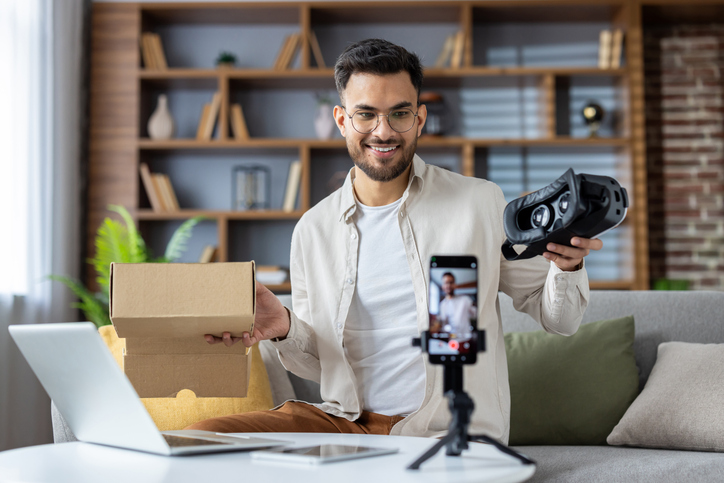Digital marketing is a broad field, encompassing an ever-growing list of techniques and practices that can increase your online exposure and turn your target audience into paying customers.
Search engine optimisation (SEO) and paid advertising are two well-known aspects of digital marketing, but they are not alone. Content marketing has risen in prominence in recent years, and considerations of PR, conversion rate optimisation (CRO), and a whole lot more should come into consideration for your digital strategy.
These ideas don’t exist in a vacuum. A successful digital marketing strategy will look different this year to how it looked last year. Crafting an effective digital strategy for the new year is not just about knowing which areas to focus on, it’s about knowing why those areas are important now.
The dominance of mobile
You should be considering mobile presentation and performance in everything you do, from the appearance of your blog to the construction of the checkout page for your new e-commerce site. If your site doesn’t function well on mobile, you’ll lose out on visibility and the potential for conversions.
The dominance of mobile hopefully isn’t news to anyone involved in digital, but that doesn’t mean we’re all great at adapting to our present reality. Make sure your websites work as well on mobile as they do on desktop, and that they are intuitive and easy for mobile users to get around. Even if customers are not converting on mobile, a good mobile experience may lead them to make a purchase on desktop later.
Most importantly, you need to consider what your target audience is using their devices for. If you are targeting a younger audience that is spending a lot of time reading quick articles and watching videos on their smart phones, then plan how you’re going optimise your site and your social media channels for that kind of content. If you know your clients are generally using mobile searches to find products in your industry, then make sure then your goal for the year should be to perform as well in mobile searches as possible.
The paid advertising opportunity
While there is a deserved focus on organic (non-paid) channels in the marketing industry, the value and importance of paid channels cannot be ignored.
The organic results for many Google searches are now topped by search features such as paid ads and Google Shopping results that catch a searcher’s eye before anything else. Investing in SEO is important, but you’re missing out if you don’t plan to get your business into those featured spots via PPC investment.
Another huge avenue for paid ads that only looks like getting more important is social media advertising. Anyone with Facebook or Twitter will have noticed the increase in ads in recent months and years, and businesses are paying good money to increase the exposure that they get. Social ads allow very granular targeting, helping you to pinpoint sections of your target audience with highly specialised ads, thereby increasing your chances of turning them into customers.
But don’t spend indiscriminately across all social media sites. Make sure you know where your target audience is most present, and what type of content they engage with the most. While sports fans might love the chance to have their say in a poll on Twitter, film fans might prefer to see a video whilst scrolling on Facebook.
The golden trifecta: content marketing, SEO and digital PR
Three of the most well-known aspects of digital marketing – SEO, digital PR and content marketing – will most likely retain their importance, even as the lines between them blur more and more.
The goal of all three areas is to increase your online visibility, normally with a focus on organic search rankings. Recent developments such as the prominence of Google’s featured snippets (short answers to searchers’ questions pulled out of the organic results), show that Google is increasingly rewarding sites with high quality content.
Even as you think about how content and PR might help your SEO efforts, don’t forget to factor in the social engagement potential of a well timed and executed content marketing campaign. If you are able to engage with your audience’s current concerns, or product content that they really like, there is great potential for exposure and traffic through your social channels.
As Google becomes better at identifying natural sounding and informative content, and social media’s popularity continues, content marketing and SEO are a business’s way of entering the online conversation. If, however, you fail to engage the conversation’s other participants, you risk being ignored and forgotten.
Underpinning your efforts with conversion rate optimisation (CRO)
You should be planning paid campaigns and content campaigns to drive traffic for the year, but don’t forget to pay close attention to the behaviour of visitors once they get to your site.
CRO is not new, but its importance cannot be understated. We live in a digital world where people will leave a website in seconds if it doesn’t meet their expectations, and will abandon a cart moments before checkout if they find a better offer elsewhere. In this kind of environment, being methodical about testing your site in order to optimise it for conversion is critical.
CRO involves testing different forms of your website to continuously improve your conversion rate. It is an iterative approach, in which you make regular adjustments and build on what you’ve done before. CRO can underpin all of the other marketing efforts that you’re making to make sure that the traffic you bring to your site turns into paying customers.
Thinking creatively
My advice for your digital strategy is simply a starting point covering some of the biggest areas of the digital marketing industry. But your business might not need anything that I’ve mentioned above. There are all sorts of areas that I haven’t had time to discuss, and techniques that will work well in your industry but not another.
My final piece of advice is that you should be constantly evaluating what your business and your competitors are doing. Don’t be afraid of trying new things, or of stopping new approaches if they’re not working. The most successful businesses this year will be those whose strategies allow them to innovate and adapt to whatever the next 12 months brings.
Ben Garry is a digital marketing consultant at Impression.





